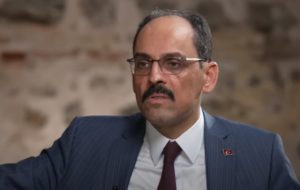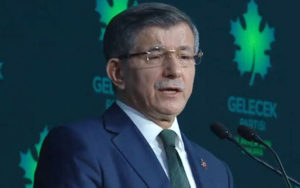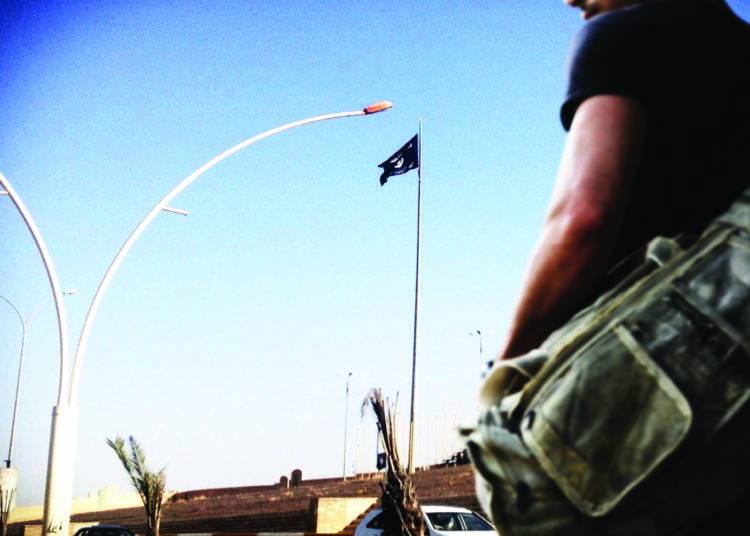Abdullah Bozkurt/Stockholm
The Turkish National Intelligence Organization (Milli İstihbarat Teşkilatı, MIT) has downplayed the threat posed by the Islamic State in Iraq and Syria – Khorasan Province (ISIS-K or ISIL-K) in a recent report, contradicting findings from the UN Security Council, which emphasized Turkey’s role as a hub within the ISIS-K terrorist network.
The report, released in May by MIT’s newly established National Intelligence Academy (Milli İstihbarat Akademisi), asserts that ISIS-K’s “structures have been eliminated as a result of operations carried out by relevant [security] units in Turkey.”
The report, which contradicts evidence of increasing ISIS-K activity on Turkish territory, downplays the poor performance of President Recep Tayyip Erdogan’s Islamist government. It appears to be part of a broader propaganda effort by the Turkish government, utilizing the intelligence agency’s psychological operations (PSYOPS) to shape public discourse.
The report asserted that ISIS-K has been unable to establish an effective presence in Turkey, struggles to recruit militants and operates underground in small cells. However, it failed to address how ISIS-K managed to gain a significant foothold in the country, conduct terrorist operations, raise funds and recruit operatives.
Instead, it merely pointed out that ISIS-K has focused on recruiting foreigners from Central Asia and the Caucasus living in Turkey illegally or on tourist visas, framing the issue as an entirely external phenomenon.
The ISIS-K report that was issued by the Intelligence Academy, a part of Turkish intelligence agency MIT:
Although it acknowledged the presence of social networks supporting ISIS-K among individuals of Central Asian and Caucasian origin in Turkey, the report emphasized that ISIS’s contact with Turks was limited to only a few marginal groups sympathetic to the organization.
The report completely overlooked the well-documented fact that, in many of the deadly ISIS attacks in Turkey, most suspects were Turkish nationals rather than foreigners. This crucial detail was simply ignored. Without support from Turkish nationals, foreign ISIS members would struggle to operate effectively within Turkey.
MIT’s report also contradicts findings from the United Nations Security Council, whose sanction monitors for ISIS and al-Qaeda state that Turkey has become a hub for ISIS-K operations, with links extending into Europe.
“ISIL-K relies on networks of facilitators between Afghanistan and Türkiye, capable of moving operatives from Central Asia and Afghanistan towards Europe to conduct external operations,” stated the report published on July 22, 2024 by a UN panel of experts.
“One Member State notes the presence of clandestine ‘super-connectors’ that exploit Türkiye to form networks and cells in Europe. Another observed strong connections between networks communicating in Russian and Central Asian languages with logistical hubs in Türkiye and in transit countries, such as Ukraine,” the UN report underlined.
According to the UN, logistical and financial support continues to be available to operatives arriving from Afghanistan and Central Asia, despite the dismantling of several ISIL-K cells in Europe. “The group’s capability to strike in countries depends upon the extent of these resident networks and their access to weapons, along with the level of operatives’ military training, ability to evade counter-terrorism measures, and identification of viable and proportionate targets,“ the report said.

In a concerning forecast, UN experts have predicted an increase in unsophisticated plots in Europe over the next year, similar to the series of ISIS attacks observed between 2015 and 2017.
In a further attempt to put a positive spin on the Erdogan government’s lackluster campaign against the ISIS-K network in Turkey, the MIT report claimed that Turkey is the leading country in effectively tackling the ISIS network. It also portrayed Turkey as a leader among Muslim countries, capable of spearheading the ideological battle against ISIS.
“Turkey is a center of religious and cultural significance within the Islamic world,” the report stated. Consequently, it argued, Turkey is uniquely positioned to prevent the spread of radical movements within the Islamic world.
This old argument is occasionally employed by President Erdogan and his allies to counter criticism of their alleged shortcomings in combating the ISIS network, both in Turkey and in regions of Syria under Turkish military and proxy control.
However, it overlooked the dangerous counter-narrative put forward by senior Turkish government officials, who have claimed that the ISIS threat was actually manufactured by the West, specifically the US, as a deliberate attempt to destabilize countries in the Middle East.
There has been an abundance of such provocative statements in recent years, which have only served to undermine the campaign against ISIS.
The full text of the UN report on ISIS raises alarm bells regarding Turkey being a hub for ISIS-K operations:
For example, in July 2020 former Turkish prime minister and foreign minister Ahmet Davutoglu claimed that ISIS was trained by the US to undermine the Arab Spring and later introduced into Syria. He also suggested that the 2013 military coup in Egypt was connected to this strategy. Davutoglu faced criticism in 2015 for his remarks that the government had identified all ISIS suicide bombers but was unable to act against them before they carried out their attacks.
He also noted that support for the ruling Justice and Development Party (AKP) increased in 2015 following a series of ISIS terror attacks that claimed the lives of over a hundred people in the country.
At a regional conference on migration in Bosnia on September 20, 2022, Turkey’s then-interior minister Süleyman Soylu, whose responsibilities include overseeing the nation’s largest law enforcement agency tasked with combating terrorism, asserted that al-Qaeda and ISIS were deliberately created by the US to destabilize countries and regions.
On February 2, 2023 Soylu reiterated his claim that the US created ISIS and al-Qaeda. On February 17, 2023 he repeated this assertion and further alleged that the West controls drug, oil and human smuggling networks. He also acknowledged that Turkey had sent thousands of ISIS members to Europe.
These outlandish claims were further amplified by government propagandists in the Turkish media. On September 4, 2020 morning news presenter Erkan Tan even claimed that ISIS is a Christian and Jewish terrorist group. Tan has long been associated with A-Haber, a national network owned by Turkish President Erdogan’s family.
The MIT report on ISIS-K also omits crucial figures regarding the number of ISIS members still held in Turkish prisons and the number of those who have been successfully convicted. Instead, it references a state broadcaster TRT report which states that in 2023, police conducted 122 operations against the terrorist group, resulting in the detention of 426 individuals.

The Turkish government has been deliberately avoiding providing figures on the number of ISIS members who were successfully prosecuted and convicted and had their convictions upheld on appeal. Instead, it focuses on disclosing the number of police operations and detentions to portray the Erdogan government as sincere in its efforts to crack down on ISIS.
On March 24, 2024 Interior Minister Ali Yerlikaya said police conducted 1,316 operations against ISIS between June 1, 2023 and March 23, 2024, resulting in the detention of 2,733 suspects. Of these, 692 were formally arrested, while the rest were released. This means that only about one in four ISIS detainees ws arrested during arraignment in Turkish courts.
Once again, Yerlikaya avoided providing figures on how many of those arrested remained in prison and how many were actually convicted. The lack of transparency stems from the fact that many ISIS detainees were released in stages during trial hearings, and very few were convicted in Turkish courts. What is more, some convictions were overturned during the appeals process by higher courts that were staffed by Islamists.
Although several lawmakers have submitted parliamentary questions in recent years requesting the number of ISIS members currently in jail, the government has consistently ignored these inquiries and declined to provide the figures.
In this permissive political environment in Turkey, where the government downplays the threat, the criminal justice system fails to effectively prosecute and convict, and where political goals are prioritized over meaningful action, statements and reports often undermine rather than support the campaign against terrorism. Consequently, ISIS and its affiliates, including ISIS-K, will continue to exploit Turkey for moving funds, recruiting militants and obtaining logistical support.













